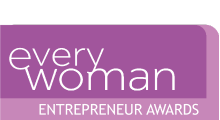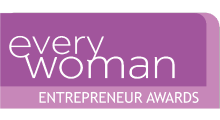Fun, financially rewarding and furthering female entrepreneurs: why YOU should consider becoming an angel investor

Latest figures indicate that more than 5,000 women are making angel investments across the UK[1], helping to create around 10,000 jobs in the past decade. The 2022 Women Angel Insights report by Beauhurst and UKBAA, sponsored by NatWest, also highlights that these figures put female angel investors very much in the minority and that the predominance of male investors significantly impacts funding for female-owned businesses.
We talked to Jenny Tooth OBE, Executive Chair of the UK Business Angels Association (UKBAA) and Mary McKenna MBE, co-founder of AwakenHub and UKBAA Angel Investor of the Year 2022-4, to find out why they became investors- and why and how they want to encourage other women to follow in their footsteps.
When did you start angel investing and why?
Mary: I started angel investing eight years ago and have, so far, invested in around 25 early-stage businesses, most with female founders. It’s still more difficult for women to start businesses, particularly in tech and to be taken seriously- and far more difficult for them to raise capital. I worked as a CFO before starting my own online learning business in 2006. We scaled in 2008, but because of the recession, there wasn’t anyone willing to invest- so we had to bootstrap. The bank lent us some money, but we had to put our houses up as collateral which was scary. When I sold my half of the business in 2014, I decided that I wanted to help other female entrepreneurs. I had a vision that if I could help a small number of women, they might go on to do the same for others later.
Jenny: I first came across angel investing in 2002 as part of a European project I was coordinating in my consultancy work, helping people access public support and grants. I began to recognise the amazing benefits of individuals putting their own money behind small businesses, and it inspired me to join London Business Angels and start angel investing myself- and then I co-founded the Angel Capital Group in 2009 to help entrepreneurs access investment and investors find investment opportunities. The financial crisis in 2008-12 impacted so many small businesses and their ability to access investment. It was then prime minister David Cameron who recognised the importance of getting more private investment to entrepreneurs launched the Seed Enterprise Investment Scheme SEIS to encourage more individuals to consider backing startups and early stage businesses.
How are you working to encourage more women who are thinking about becoming angel investors?
Jenny: In 2012, I set up the UK Business Angels Association, a trade body for early stage investing, to kick start Angel investment across the UK, post the financial crisis and encourage more people to recognise the opportunity to become investors and support them in that journey. We started out with 12 angel groups around the UK, and we now have 89 with 18,000 investors and over £2 bn invested annually. However, there are still so few women within that investment community- only 14% of the UK angel population is female. Research from other European countries shows this is a universal problem. If we can move that needle and double the numbers, then that will start to have an impact. Of the women who were investing, research shows that 30-50% of their investment went into female entrepreneurs, so we know that increasing the number of women investors makes sense. That led to us creating the ‘Women Backing Women’ campaign in 2022 following the Rose Review of Female Entrepreneurship, to empower many more women to angel invest.
Mary: In 2020, I co-founded AwakenHub, a social enterprise for women in northern and southern Ireland, and we now have 3,000 women founders as members. We aimed to increase opportunity, access, and connectivity for women founders by removing barriers to investment, scale, and success. With some corporate sponsorship, we have run two accelerators for early-stage female founders. We launched an angel syndicate, AwakenAngels, in 2023, and we’re now onboarding around 100 potential female angels and will have our first pitch night online on the 19th of September.
Why do female founders need more women angel investors and support to access funding?
Jenny: There is a long-standing issue around women approaching investment, and some of it leads back to their background and their sense of entitlement, so they tend to bootstrap and take a long time to grow as a result. They might not have networks that can offer insight and information, and for those who get to the point of standing in front of a group of investors, the experiences may have been terrifying and negative because the room will be full of men who often put very probing, negative questions towards women in these situations. All these things can be real barriers to women entrepreneurs accessing investment.
Who traditionally becomes an angel investor and what is their motivation?
Mary: The main group tend to be professional women who don’t have anything to do with the startup ecosystem but want to make money and put their professional skills and insights back into helping other women. The other group is women in their 20s who want to start building their portfolios. It is important to them to know exactly what the business they are investing in is doing with their money because they care a lot about environmental and social factors.
Jenny: When you ask women their motivation for angel investing, ‘making money’ is never the first thing they say- it’s always about putting something back into the economy or wanting to help and support other women on their entrepreneurial journey. Women also tend to want to back new ideas and innovation- through my investments, I have learned so much and discovered amazing solutions to the world’s problems, from addressing core healthcare issues, to increasing access to education and long before they break in the media.
How can raising awareness about angel investing help to remove barriers?
Mary: When women come to our events to learn more about angel investing, you see them have a lightbulb moment when you tell them about the tax breaks, which are significant through the Enterprise Investment Scheme and SEED enterprise investment scheme. These can de-risk your investments; if you invest £20,000, you get half of that money back straightaway in your tax bill. And later, if the company exits and you’ve had the shares for three years, you don’t pay capital gains tax on the money you make. New automated platforms also mean you can make the commercials on an angel syndicate work at lower ticket prices- with AwakenAngels, women can come in from as little as £2,000.
Jenny: Importantly, our research shows that 90% of women who’ve started investing or have enough money to talk to a tax or wealth adviser do not get the advice they need. The advisor would generally not tell a woman about the tax breaks or how to be an angel investor because they assume they should not be taking risks. To help women to understand the schemes fully and why they’re important, UKBAA has made a useful video with the support of NatWest setting out the benefits and opportunities to access EIS and SEIS tax reliefs to support their investing in women founders and explaining how women founders can use these schemes to increase their potential to access investment.[2]
What should women consider before they become angel investors?
Jenny: Entrepreneurs may do several fundraising rounds to help them grow, and your position in that shareholding will get smaller and smaller if you only put one round of investment in, so be prepared to make more than one investment in a female entrepreneur. It is also important to remember that you may never see your money again, or it might be tied up for a long time. Hence, you need a level of disposable finance to back an entrepreneur in the early stages of becoming a successful company.
Mary: Investing alone isn’t a good idea if you’re new to it. From my experience, the first three companies I invested in all went into liquidation! You’re better off being in a syndicate like AwakenAngels with experienced investors that you can learn from because it spreads the risk and ensures that proper due diligence is done on the company, products, technology, and founders, which you might not know how to do on your own.
What is a successful angel investor mindset?
Mary: Being open to sharing experiences and networks and sometimes rolling up your sleeves, particularly in an early-stage company. You can’t meddle too much- there’s a fine line between being helpful and being annoying as an investor. Networking is also key. The saddest thing I ever hear a woman say is, ‘I know networking is important, but I don’t have time to do it’.
Jenny: As an investor, you’re there to really help the female entrepreneur succeed. If it’s just all about money, you can’t do it because timeframes can be long. One of the most important things is to help people make connections because so many women entrepreneurs are short of these, whether that’s customers, markets or just someone who can help them with the ‘next thing’.
Why would you recommend angel investing to women?
Mary: Along with potential financial returns and the chance to support other women entrepreneurs, angel investment is also a lot of fun. It’s great to get involved with the businesses and to get a bit of the shine from the great innovations that they’re coming up with. Angel investing allows you to have all the fun of being in a startup without any of the sleepless nights.
Jenny: You meet so many fantastic people because you’re creating syndicates and knowledge-sharing. So women backing other women is what we should all be doing. You might not be ready just yet, but it’s something you can commit to doing as part of your ongoing strategy as a professional or entrepreneurial woman.
For further information on angel investing for founders and investors look at www.ukbaa.org.uk and www.awakenhub.com
[1] The 2022 Women Angel Insights report from Beauhurst and UK Business Angels Association (UKBAA)
[2] The 2023 EIS/SEIS awareness video aimed at women founders and investors, from the UK Business Angels Association (UKBAA)

